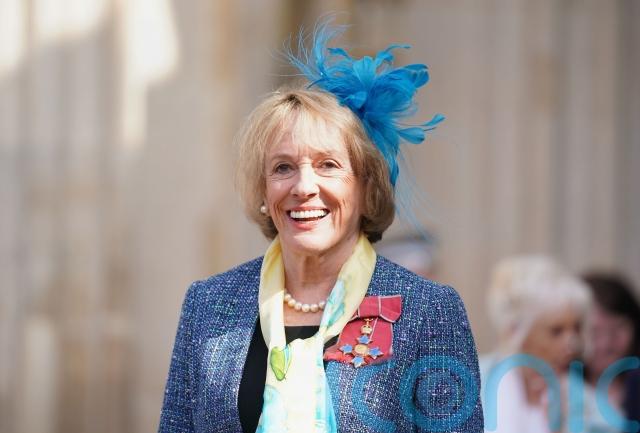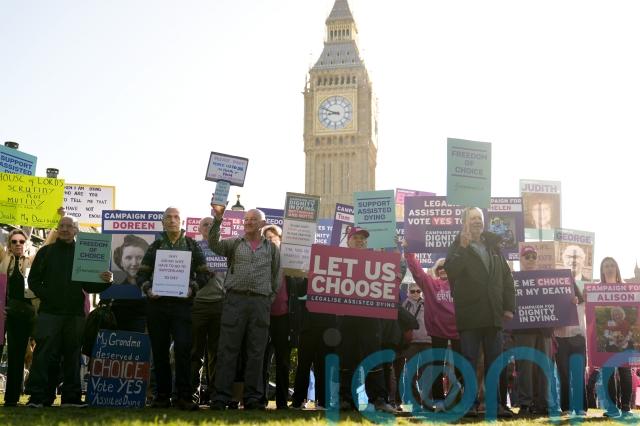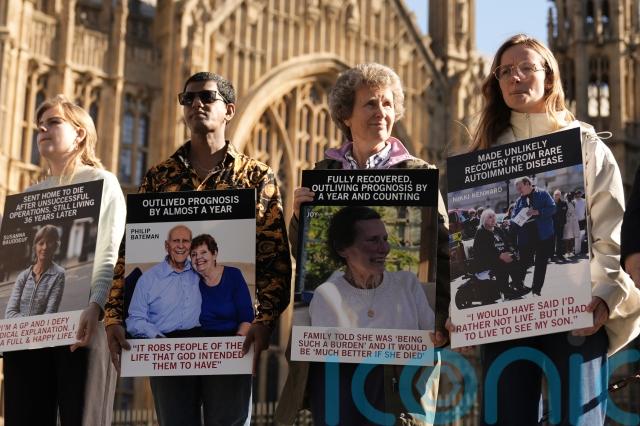
The assisted dying Bill has been branded a “licence to kill” as the House of Lords began its historic first debate on the proposed legislation.
Conservative former prime minster Theresa May told the packed red benches of the upper chamber in Parliament that she fears the Terminally Ill Adults (End of Life) Bill does not have enough safeguards and could be used to cover up medical mistakes.
Baroness May, one of around 190 speakers expected to have their say on the Bill across a two-day debate, said she is worried about the impact on people with disabilities, chronic illness and mental health problems as “there is a risk that legalising assisted dying reinforces the dangerous notion that some lives are less worth living than others”.
The former Tory leader said: “There is a danger that this could be used as a cover-up. A cover-up for mistakes made in hospital, or for perhaps a hospital-acquired illness, infection, which has led to an increased likelihood of death.
“I have a friend who calls it the ‘licence to kill’ Bill.”
She referred to it as an “assisted suicide Bill” and said it “effectively says suicide is OK”.
Leading support for the Bill, former lord chancellor and justice secretary Lord Charlie Falconer said the current law is “confused” and “causes terrible suffering and lacks compassion and safeguards”.
Those backing a change in the law have repeatedly said it is not acceptable that desperate terminally ill people feel the need to end their lives in secret or go abroad to Dignitas alone, for fear that loved ones will be prosecuted for helping them.
Childline founder Dame Esther Rantzen, who is terminally ill, has spoken about making plans to go to the Swiss clinic and her sadness that no family would be able to accompany her in case they faced criminal investigation.

Lord Falconer said the full chamber “reflects the seriousness with which the Lords takes this issue”, adding: “This is an historic occasion.”
He warned it is not the job of peers – who, unlike MPs, are not elected by the public – to “frustrate” the Bill’s passage through Parliament.
The Labour peer said: “We must do our job in this House, and our job is not to frustrate, it is to scrutinise.”
While the Lords is seen mainly as a revising chamber, undertaking line-by-line scrutiny of draft laws which have already had approval in the Commons, peers can tell MPs to “think again” when they feel it necessary.
Bishop of London Dame Sarah Mullally insisted peers must be given a vote on the overall Bill – something which usually happens at a future stage known as Third Reading but could happen earlier, at the end of debate next week.
She told the House: “It may not be the will of the House to take the decision on the principle of this Bill today, but I firmly hope that we will do that in the Third Reading.
“If it is necessary, I will table the amendment myself, so this House is given the same opportunity as the other place to decide.”

There is always a motion to agree Second Reading at the end of the debate – likely to be on September 19. That is not usually put to a vote in the Lords but it can be and, if peers voted no, the Bill would fall and parliamentary efforts to legalise assisted dying would have to start again.
Ahead of the debate, the equalities watchdog raised concerns about the Bill, calling for more detailed assessment of how the proposed legislation might impact society’s most vulnerable.
In advice to members of the House of Lords, the Equality and Human Rights Commission (EHRC) said more detail is needed on how a new law could affect people from different backgrounds and those with disabilities.
As peers began debate, Labour MP Kim Leadbeater, who introduced the Bill in the Commons last year, was watching from the gallery.
Demonstrators again gathered outside Parliament both in support of and in opposition to the Bill, which would apply to England and Wales if it became law.

The Bill’s supporters have described it as one of the safest in the world, requiring an application for an assisted death to be approved by two doctors and an expert panel.
But opponents have raised concerns around possible coercion, a lack of adequate safeguards, and not enough time for such controversial legislation to be properly scrutinised.
The Bill has been subject to debate in the Commons, as well as line-by-line scrutiny by a committee of MPs.
The Government has said it is neutral on assisted dying and MPs had a free vote in the Commons debates, meaning they supported or opposed the Bill based on their own view rather than along party lines.
The total number of peers to speak across the two-day debate could surpass the previous record of 187, for the EU Withdrawal Bill’s Second Reading in 2018.
The legislation would make assisted dying available to adults in England and Wales with a terminal diagnosis of less than six months to live.
Subscribe or register today to discover more from DonegalLive.ie
Buy the e-paper of the Donegal Democrat, Donegal People's Press, Donegal Post and Inish Times here for instant access to Donegal's premier news titles.
Keep up with the latest news from Donegal with our daily newsletter featuring the most important stories of the day delivered to your inbox every evening at 5pm.